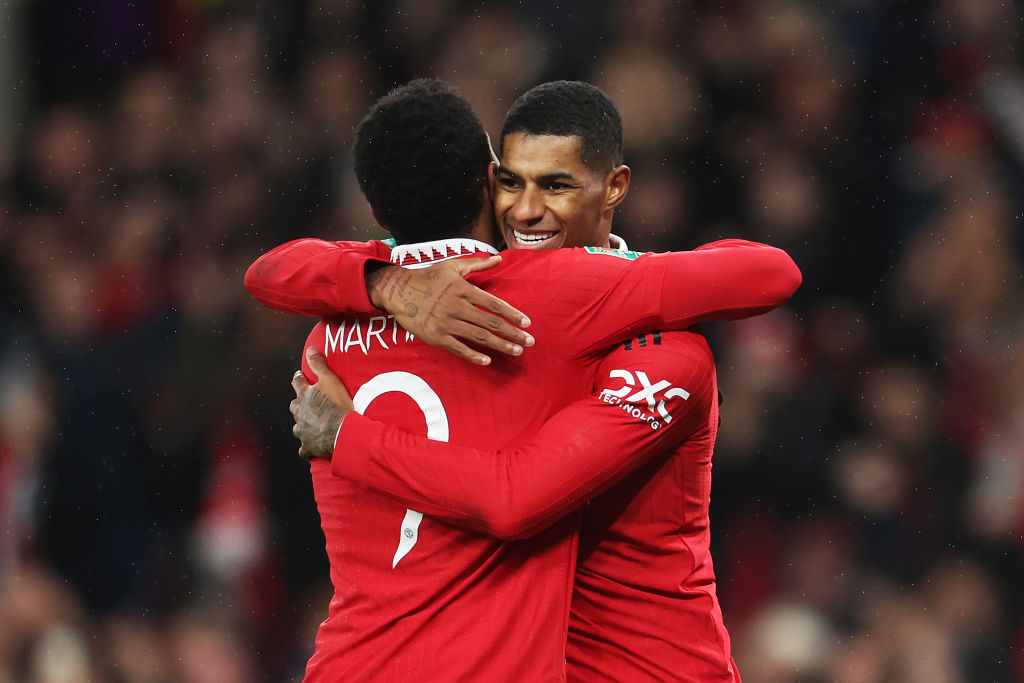Barcelona and Manchester United are both on the way back up but the Premier League club is on a much surer footing

Some fixtures just feel like they belong in the Champions League and Barcelona versus Manchester United is one of them. Tonight, however, they will meet in Uefa’s second-tier competition, the Europa League, in the first leg of a play-off tie to reach the last 16.
It is a sign of how far both teams have slipped from their perches at the summit of the club game. Between 2006 and 2011 Barcelona and United contested three Champions League finals, two of them against each other – with the Catalan side winning both games.
Yet things are looking up at Camp Nou and Old Trafford once again. Barcelona are on course for their first LaLiga title in four years, 11 points clear in the Spanish top division, revitalised under coach Xavi Hernandez following the dismal tenures of Ronald Koeman and Quique Setien, helped by the latest gems from the club’s Masia academy, Pedri and Gavi.
United, meanwhile, are challenging the Premier League leaders for the first time since 2017-18, their second season under Jose Mourinho. Manager Erik ten Hag has instigated a no-nonsense reboot that dispensed with Cristiano Ronaldo and flicked a switch in Marcus Rashford, who has scored 13 goals in 15 games since returning from the World Cup.
Both face a degree of uncertainty off the field, however. Barcelona continue to skate on thin ice financially, while United are likely to have new owners by the start of next season. Yet one of the clubs looks to be on a much firmer footing as they attempt to restore former glories.
Barca are more than £1bn in debt and have for several years been selling off future revenues in the hope of keeping their heads above water. Last year they took it to new extremes, raising more than £350m through a process that the club called activating “economic levers”.
In practice it meant flogging various rights of questionable obvious value to third parties in order to make summer signings. A major gamble and one that may be about to backfire, with Spanish football chiefs drastically restricting the use of these “levers” and European regulators likely to rule they do not count towards meeting financial fair play (FFP) rules.
If Barcelona’s revival is built on sand, United’s appears to have more solid foundations. Like Xavi, Ten Hag is a good manager with a clear philosophy that he has now instilled. (Indeed their footballing values are both derived from the Netherlands, Ten Hag as a native and Xavi from being steeped in the traditions of Johan Cruyff’s Barcelona).
The difference, however, is that United are financially set up to succeed. Although they have debt, it is around half of Barca’s and may be diluted or eliminated by an imminent takeover. And whoever assumes control from the Glazer family, it seems likely the club will have more money to spend than under the dividend-draining Americans.
This fixture could return to its rightful place in the Champions League next season, with both teams firmly on track to qualify. But United’s prospects of staying there look brighter than those of Barcelona, who could soon find themselves back in the Europa League – or, if found to be in breach of FFP by Uefa, banned from European competition altogether.
